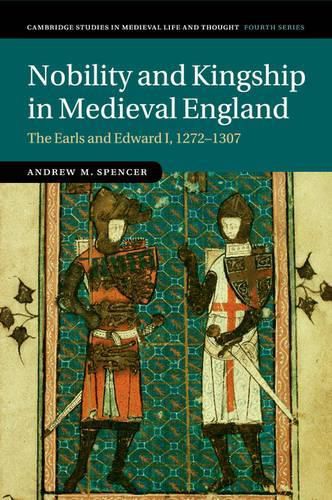Readings Newsletter
Become a Readings Member to make your shopping experience even easier.
Sign in or sign up for free!
You’re not far away from qualifying for FREE standard shipping within Australia
You’ve qualified for FREE standard shipping within Australia
The cart is loading…






Nobility and Kingship in Medieval England is a major new account of the relationship between Edward I and his earls, and of the role of the English nobility in thirteenth-century governance. Re-evaluating crown-noble relations of the period, Spencer challenges traditional interpretations of Edward’s reign, showing that his reputed masterfulness has been overplayed and that his kingship was far subtler, and therefore more effective, than this stereotype would suggest. Drawing from key earldoms such as Lincoln, Lancaster, Cornwall and Warenne, the book reveals how nobles created local followings and exercised power at a local level as well as surveying the political, governmental, social and military lives of the earls, prompting us to rethink our perception of their position in thirteenth-century politics. Adopting a powerful revisionist perspective, Spencer presents a major new statement about thirteenth-century England; one which will transform our understanding of politics and kingship in the period.
$9.00 standard shipping within Australia
FREE standard shipping within Australia for orders over $100.00
Express & International shipping calculated at checkout
Nobility and Kingship in Medieval England is a major new account of the relationship between Edward I and his earls, and of the role of the English nobility in thirteenth-century governance. Re-evaluating crown-noble relations of the period, Spencer challenges traditional interpretations of Edward’s reign, showing that his reputed masterfulness has been overplayed and that his kingship was far subtler, and therefore more effective, than this stereotype would suggest. Drawing from key earldoms such as Lincoln, Lancaster, Cornwall and Warenne, the book reveals how nobles created local followings and exercised power at a local level as well as surveying the political, governmental, social and military lives of the earls, prompting us to rethink our perception of their position in thirteenth-century politics. Adopting a powerful revisionist perspective, Spencer presents a major new statement about thirteenth-century England; one which will transform our understanding of politics and kingship in the period.